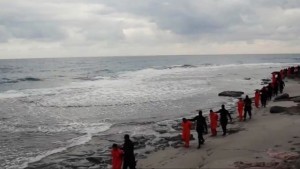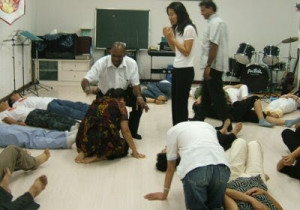 In the last blog post I expressed some regret at the fact that churches, unlike care homes, were often never subject to inspection. In a denominational structure, each congregation might have a bishop who maintains some oversight of all his congregations, but in practice it is only when members of the congregation start writing letters of complaint to the bishop or superintendent that the powers that be sit up and take an interest in a congregation’s internal happenings.
In the last blog post I expressed some regret at the fact that churches, unlike care homes, were often never subject to inspection. In a denominational structure, each congregation might have a bishop who maintains some oversight of all his congregations, but in practice it is only when members of the congregation start writing letters of complaint to the bishop or superintendent that the powers that be sit up and take an interest in a congregation’s internal happenings.
This lack of interest in the internal workings of congregations by the outside is particularly acute in the case of independent groups. The situation at Trinity Church Brentwood seems to have reached stalemate on this precise issue. Many of its problems seem to have arisen from a lack of oversight over three decades and now that they have been forced to accept the need for some sort of inspection and review because of the rape allegation, the structures around them have no mechanism for putting this in place. The Evangelical Alliance, an umbrella organisation to which Trinity belongs, was thought to have promised to provide an external chairman for its commission of inspection. After eight weeks, no chairman has appeared and one is left with the thought that no one of the relevant calibre is prepared to do the job. The fiercely protected independence of Trinity has meant that all outsiders have hitherto maintained their distance. If a church has a reputation for resisting all outsiders except those it can use or manipulate for its own purposes, no one else is likely to want to take on such a task. The qualities required of an independent chairman are those of a high court judge. Is anyone going to get involved with a place with such a dysfunctional reputation? What would be in it for them? A recent blog post suggests that the EA may have done nothing except make a suggestion of one name. Assuming that this name has turned down the ‘opportunity’, then we are back to square one. Before Christmas, Trinity made a great play of a new openness that would take place through this commission. It would appear that the years of isolation and refusal to engage with the outside world and churches have rebounded on it. Structurally it cannot find a way forward because there is no one or no institution is prepared to provide an external mirror which is needed to reflect a balanced picture of Trinity’s life and conduct. The only mirror that it has is the one that Narcissus used on himself in the myth. It is the mirror that it sees only its own reflection, and viewing this particular mirror Trinity sees only a fantasy of power and brilliance. Needless to say that brilliance and power is a total distortion.
The issue of the dangers of independence among churches is one that will not be resolved any time soon. The law struggles with any kind of sanctions or involvement against religious groups which manage to avoid actual criminal activities. As we have said before, the only time that the law takes an interest is when money or sexual misconduct are involved. For the rest, it assumes that religion is ‘good thing’. It has nothing to offer to those who wish to show that religious groups can abuse, fleece and generally mess your life up very badly. The assumption is also that a belief system – any belief system – is a matter of individual choice.
There was a glimmer of hope that the law might one day change a little when Sir Edward Garnier MP spoke in the Commons about the Modern Slavery Bill in November last year. He spoke about the idea of ‘exploitative pressure’ being an issue in the events that lead to someone becoming a slave. For someone to become a sex-slave there has to be some initial non-physical pressure to persuade a young woman to leave her family and country for the promise of pastures new. Actual physical coercion probably becomes a factor only later on the process. This may sound a long way from the issues at Trinity but if Parliament were to be able to get into law the idea that some people are harmed by the false promises and emotional coercion during the slavery process, then we might see such a law eventually covering other similar examples of emotional exploitation that take place in churches up and down the land. The many victims of cults and cultic churches like Trinity are arguably as much victims of ‘exploitative pressure’ as the victims of sexual slavery.
Up till this moment, the law of America and Britain has no concept of ‘exploitative pressure’ being in any way illegal or detrimental to a young women’s well-being. France, by contrast, has robust laws to protect its citizens from charlatans, religious and otherwise. But at present British and American law is unwilling ever to get involved in religious matters. There would however seem to be a new urgency for the lawmakers to formulate some new legal definitions to cover the numerous examples of young men and women being persuaded to fight for ISIS, which is clearly a variation on the theme of enslavement. Surely it is in the interests of society to define legally the pressures, emotional and otherwise that coerce and groom young people into actions that are clearly against their best interests. Do we always have to wait for these ISIS fighters actually to commit some atrocity or be caught in some plot before stopping them in their tracks? Is it not possible to intervene legally earlier in the process? Do we not need some new legal definitions to hold to account those who groom the impressionable and vulnerable young in the Muslim community? Such legal definitions might help also to protect some young people in cultic communities avoid the worst excesses of emotional exploitation.
The failure to protect the vulnerable, an issue that is becoming all too apparent in the Trinity saga, is a failure that ultimately concerns the whole of society. The exploitation of the young in the name of religion, whether Muslim or Christian, is unable to be addressed by our law-makers at present. Let us hope that it does not take a new 7/7 before society wakes up to the enormous power of religion in people’s lives. Many times this is benign and life-giving. It should not be beyond the wit of legal minds to show how the opposite kind of religious power, that of malign influence, should be outlawed and made illegal.





